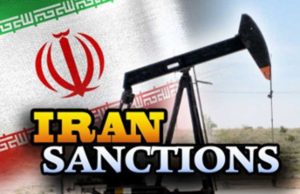By Kabir Taneja
On May 8, US President Donald Trump pulled out of the much-celebrated Iran nuclear deal, also known as the Joint Comprehensive Plan of Action (JCPOA), saying it allowed too much leeway to Tehran in return for very little for the United States regarding Iran’s nuclear programme. The deal, negotiated between the five permanent members of the United Nations Security Council (UNSC) and Germany (P5+1) with Tehran during the Barack Obama administration had been hailed as a diplomatic coup, a rare resolution of strong disagreements between multiple nations via dialogue.
As the presidential candidate in 2016, Trump had repeatedly derided the agreement as a failure of the administration and leadership of former president Barack Obama, and one of his campaign promises was to exit the deal if he became president. Trump has kept his promise, but whether he did so just to show his seriousness about campaign promises or his actual concerns over the nuclear deal, which was endorsed by most American allies, is still up for debate. Trump’s disdain for anything that could become Obama’s legacy seems to be driving the move to take apart the Iran nuclear deal, which even the International Atomic Energy Agency said had enough checks and balances for them to transparently monitor Iran’s nuclear programme.
Now, on August 6, the US may impose secondary sanctions, stronger than those under Obama, on non-American entities doing business with Iran, with special attention towards those dealing with the Iranian oil industry. This brings India-Iran ties under scrutiny. Indeed, US Ambassador to the United Nations Nikki Haley specifically came to Delhi recently to ask that India “rethink” its relationship with Iran altogether. Although Haley said the US understood that India cannot delink from Iran overnight, she highlighted that India should decide whether to continue doing business with Iran. India’s response has been that Iran is a “traditional partner” of New Delhi and that India retains the autonomy to make its foreign policy decisions. Months earlier, in parliament, Prime Minister Narendra Modi had asserted that if India wants to buy oil from Iran, it will do so, and will not adhere to US sanctions, unless backed by UN consensus.
The current payment system between India and Iran, orchestrated by refiners, uses the State Bank of India (SBI), which then transfers the funds in Euros to Europpaeisch-Iranische Handelsbank AG (EIH) based in Hamburg, Germany. The EIH was removed from the sanctioned list as part of the JCPOA agreement. Prior to this, India used to use Turkish state-owned Halkbank for payments, before that route was shut down as well during international sanctions. The fate of the EIH system hangs in the balance yet again, as the SBI has reportedly decided to stop handling Iran oil payments, contending that its American business interests are more important than its Iranian ones.
This brings us back to the question of what’s driving Trump, other than the domestic political agenda, at tactical and strategic levels on the Iran nuclear deal. While the White House wants the world to believe that it is only motivated by the desire to scrap a bad deal, that argument simply does not hold up. What extraordinary clauses of the agreement does the Trump administration have differences over with its European counterparts? Tehran is banking on Paris and Berlin to come up with an alternative ecosystem, one that allows Europe and Iran to conduct trade, business and diplomacy without the obstructions and a thought process that allows legitimate, sovereign agreements to be binned overnight.
That’s where things get complicated in the US-Iran equation. Trump’s blames the weakness of the JCPOA for his action but the truth is that it is not the infirmities of the nuclear deal but Iran’s successful expansion in West Asia as the Shiite power that concerns Trump, and his hawkish advisers, such as National Security Adviser John Bolton. Iran has indeed gained strong influence over the polity and geography of Syria, bringing its military to the borders of Israel and Saudi Arabia. Further, its control over Hezbollah in Lebanon and alleged support of Hamas in Palestine also rankles the US. Trump has often called Iran the greatest sponsor of terrorism, and while it is correct that Iran-backed Shiite militias now have incredible leverage in Syria, the JCPOA was by consensus decided to be negotiated without bringing in other issues of contention. It was to be purely a negotiated agreement regarding Iran’s nuclear programme, the success of which could have opened scope for addressing other issues, including terrorism.
The current US tangle over Iran is a self-inflicted foreign policy wound, devoid of long-term thinking and bringing the hawkish thinking back that military intervention could perhaps solve the Iran conundrum, both nuclear and otherwise. History, however, highlights the glaring failures of such American thinking — from Baghdad to Kabul.

